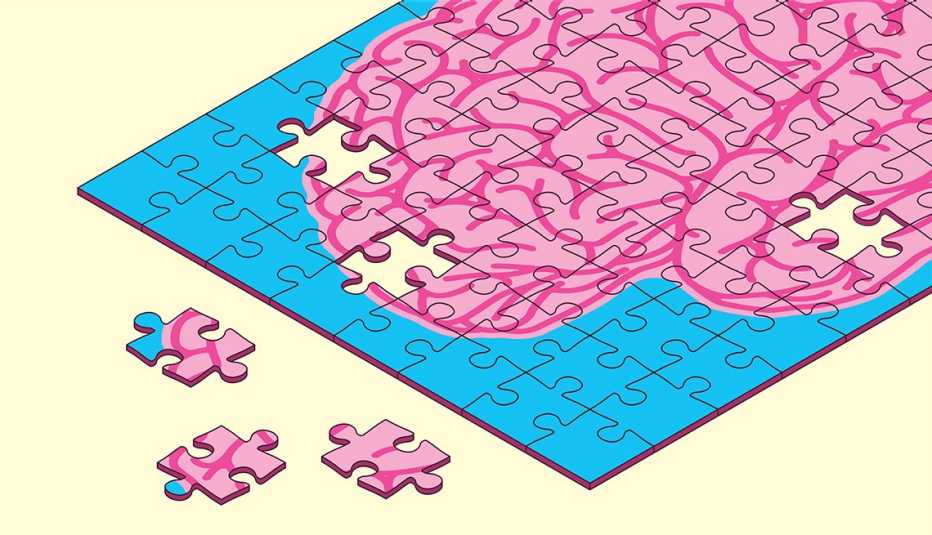AARP Hearing Center


Your keys are missing — again. Last time you lost them, they showed up in your coat pocket. (Of course.) But sometimes they show up on a random table in your home. Once, they were still in the door. Oof.
Losing your keys or having similar brain blips — such as forgetting what you walked into a room for, why you opened your fridge or where you placed your glasses — may happen more often as you age. One in nine adults 45 and older say they experienced more memory problems or confusion over the previous year, according to 2015-2017 data analyzed by the Centers for Disease Control and Prevention (CDC).
Memory short circuits can make you question whether what you’re experiencing is something more serious, such as mild cognitive impairment (MCI), a term that describes worsening confusion and memory loss that in some cases can lead to dementia.
Although we can’t tell you definitively if cognitive problems are the culprit — or if you’re in the clear — there are symptoms that experts say can clue you in on what’s normal and what may be cause for concern.
Compare your experiences with these all-too-common scenarios for advice on what to do next.
Telling a story to a friend, you blank on the name of a shared acquaintance.
This is probably normal. There are expected brain changes that happen as you add candles to your cake. “Processing speed can slow down as we age. The speed and ability to retrieve info from your memory may become a bit slower,” says Sarah Kremen, M.D., director of the Neurobehavior Program at Cedars-Sinai in Los Angeles.
Most likely, that info will come back to you — long after you needed it. (Of course, her name is Beth!) Focusing on one thing at a time, rather than multitasking or looking at your phone when you shouldn’t be, can help clear background clutter to encode information into your brain, Kremen says.
You’ve always been pretty even-keeled, but your sister has noticed your mood swings lately.
Consider visiting your doctor. “Any new change in mood over the age of 50 should be considered the brain’s way of sending out warning signals,” says Rhonna Shatz, D.O., adjunct associate professor and an endowed chair in research and education in Alzheimer’s disease at the University of Cincinnati College of Medicine.





































































More From AARP
AARP Smart Guide to Keeping Your Memory Sharp
22 science-backed ways to growing a healthier, happier brain, now and in the future
A Blood Test for Alzheimer’s Disease?
Dementia experts say we’re getting closerHow Is Dementia Diagnosed?
If you have concerns, don't put off the examTake the Cognitive Assessment
Member Benefit: Find out how you perform today in five key areas, including memory and attention